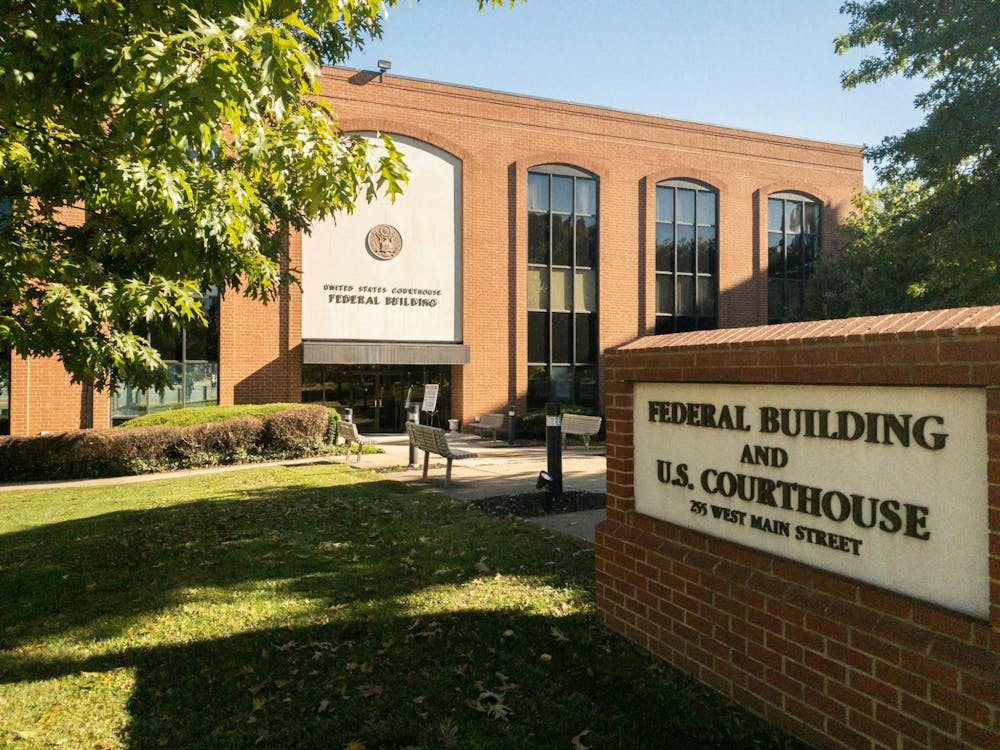For my entire time at the University, I have been working with students who are accused of honor offenses. It has taken me a while to really develop an understanding of what the process means to these students and how it can often lack the fundamental fairness you might expect. I speak up now because we have an opportunity that we have never had before: to forgo the single sanction at the University. In order to explore this possibility, I encourage you to vote for Option 2 for four key reasons.
The first two points have to do with rights of the student population: those who violate the honor code must be held accountable so we can maintain a community of trust.
Reporting rates
Students at the University care a lot about the Honor code, yet over 60 percent of students would not report an offense due to a reason at least somewhat relating to the single sanction. Moreover, 79 percent of students believe more individuals would file reports under a multi-sanction system. So rather than having a few students who committed offenses be reported with a large, disproportionate (see my third point) punishment, we should be encouraging all misconduct to be reported with a more fair punishment. This would increase reporting and thus allow for more accountability.
Decisions at hearings
Although jurors are instructed not to vote based on the single sanction, some look back and say it played a role in their decision. Should the guilt of a student be dependent on their punishment? Only 14 percent of students agree with the single sanction with no reservations. This means that 86 percent of the students eligible to serve on a jury do not entirely agree with the punishment, and may have a tendency (knowingly or not) to vote not guilty, regardless of what the facts of the case state. The injustice of this practice is those students who are expelled bear the brunt of the inconsistency and unfairness of the harsh punishment.
These next two points have to deal with rights of the accused, and are where my personal experiences with Honor come into play.
Proportional justice
This is the old belief that the punishment should fit the crime. I am a strong believer that there are different levels of honor violations that I have seen at the University in the over 20 cases I have served on. Undoubtedly, there are some students who may deserve to be expelled (and with Option 2, the committee will not lose its right to expel students.) However, I have also seen students who were first-time offenders and did not seem to fully understand the rules here at the University. This might seem strange to you, but take different majors, like Computer Science, and things are not as cut and dry. Moreover, international students and students from high schools without an honor code are prone to “slipping up” early on in their college career. Should one uncertain mistake lead to permanent expulsion? In my opinion, that is not proportionate punishment to the harm they have done to our community.
Second Chances
To me, this might be the most important point (and to be fair, it’s really an extension of my third point). When former Honor Chair Evan Behrle asked at convocation for everyone to sit down if they had ever lied, cheated or stolen, every student but one or two did. Now this was convocation, so these students had never been to a college class yet. But I think the reaction would remain for those of us who have been at the University for a while. Sometimes people make mistakes. College students are not immune to that. I know I make a lot them. Some are worse than others, and all deserve a proportionate punishment, but the single sanction does not responsibly provide an opportunity to learn and improve. When you know fourth-years who could lose their jobs, colleagues who spend a semester worrying about something they didn’t do only to be told what they already know ("not guilty”) or an international student who loses his student visa, you can’t help but ask if what we are doing is right. The student is not given a chance to make amends, and they suffer tremendously through the punishment. We say “honor is not punitive,” but from my perspective I would say that is false.
In closing, at least vote. I hope you see me eye-to-eye on Option 2, but please take my fourth point and realize that this policy, and thus your vote, affects real people. Not just people, but your colleagues, your students, and your friends. Read up on both policies, and make an informed decision. I wholeheartedly believe Option 2 will bring much needed fairness and reconsideration to our antiquated system.
Eric MacBlane is a fourth-year Engineering student and a senior support officer and investigative coordinator for the Honor Committee.






